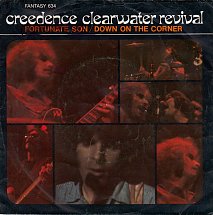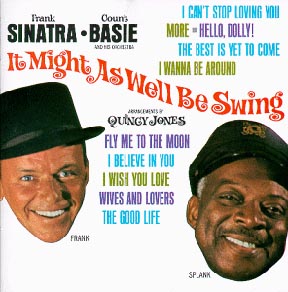
Song
Heartbreak Hotel
Elvis Presley
Album:
Heartbreak Hotel
Song Meaning of Heartbreak Hotel by Elvis Presley, and what it is about
When RCA Records signed “hillbilly cat” Presley, the label expected more songs like his rockabilly hits from Sun Records. Instead, for his first RCA single, Presley recorded this gloomy, downtempo number, co-written by Mae Boren Axton, his former publicist, and inspired by a Miami Herald report of a suicide note that consisted solely of the line “I walk a lonely street.”
But what Sun Records founder Sam Phillips called “a morbid mess” went on to become Presley’s first Number One hit and million-selling single.
"Heartbreak Hotel" is a song recorded by American singer Elvis Presley. It was released as a single in 1956, Presley's first on his new record label RCA Victor.
It was written by Mae Boren Axton and Tommy Durden, with credit being given also to Presley.
A newspaper article about the suicide of a lonely man who jumped from a hotel window inspired the song.
Axton presented the song to Presley in November 1955 at a country music convention in Nashville.
Presley recorded it on January 10, 1956, in a session with his band, the Blue Moon Boys, the guitarist Chet Atkins and the pianist Floyd Cramer.
"Heartbreak Hotel" comprises an eight-bar blues progression, with heavy reverberation throughout the track, to imitate the character of Presley's Sun recordings.
The song was written in 1955, by Mae Boren Axton, a high school teacher with a background in musical promotion, and Jacksonville, Florida-based singer–songwriter Tommy Durden.
The lyrics were based on a report supposedly in The Miami Herald about a man who had destroyed all his identity papers and jumped to his death from a hotel window, leaving a suicide note with the single line, "I walk a lonely street".
In 2016, an article in Rolling Stone magazine suggested that the story in reality originated from a report about a painter and criminal, Alvin Krolik, whose marriage had failed and who wrote a unpublished autobiography including the line "This is the story of a person who walked a lonely street."
Krolik's story was published in news media, and received further publicity after he was shot and killed in an attempted robbery in El Paso, Texas. On August 25, 1955, the El Paso Times reported Krolik's death under the headline "Story Of Person Who Walked Lonely Street".
Axton and Durden give different accounts of how the song was written.
Durden's account is that he had already written the song and performed it with his band the Swing Billys before he presented it to Axton.
Axton's account is that Durden had written only a few lines of the song and asked her to help him finish it.
She says that the report of the suicide "stunned" her, and she told Durden, "Everybody in the world has someone who cares. Let's put a Heartbreak Hotel at the end of this lonely street".
They were interrupted by the arrival of Glenn Reeves, a local performer who had previously worked with Axton.
The duo asked Reeves to help with the song, but after hearing the title he remarked that it was "the silliest thing I've ever heard", and left them to finish it themselves.
The song was written within an hour, and Durden recorded it onto Axton's tape recorder.
Reeves returned, and after hearing the song he was asked to provide a voice demo for Axton in the style of Elvis Presley.
Reeves obliged, but once again turned down the offer of a writing credit for his input.
Axton approached the popular singing duo the Wilburn Brothers, and offered them the chance to record "Heartbreak Hotel".
However, Doyle and Teddy Wilburn declined, describing the song as "strange and almost morbid".
Axton, however, agreed to a publishing deal with Buddy Killen, a young Nashville bass player, who had recently set up his own publishing company called Tree Publishing.
With a publishing deal in place, Axton arranged through Presley's manager Colonel Tom Parker to present the song to Presley at the annual Country Music Disc Jockey Convention in Nashville, Tennessee, where he was to be named the most promising male country star of 1955.
During one concert Axton observed the reaction of the audience to Presley's performance, in which a crowd of screaming fans chased him back to his dressing room and ripped his clothes off to take as souvenirs.
Axton followed Presley's career closely after this incident, and met him at a July 28 concert in Jacksonville, this time interviewing him for the local media.
According to author Albert Goldman, Axton made writing Presley's first big hit one of her ambitions.
Rumors had been circulating in the press for several weeks that Presley, who had begun his career at Sun Records, was ready to move to RCA Victor to help launch him nationally.
Axton played the demo to him in his room at the Andrew Jackson Hotel on November 10, 1955.
Upon hearing the demo, Presley exclaimed "Hot dog, Mae, play that again!", and listened to it ten times, memorizing the song.
After signing with RCA on November 21, 1955, Presley accepted Axton's offer of a third of the royalties if he made the song his first single on his new label.
Presley performed the song for the first time in Swifton, Arkansas, on December 9, 1955, and declared to the audience that it would be his first hit.
"Heartbreak Hotel" was the second song Presley recorded at RCA Victor, following "I Got a Woman", during his debut session at 1525 McGavock Street in Nashville on January 10, 1956.
Presley arrived at the studio with the song ready to record without seeking RCA's approval, and although producer Steve Sholes was not sure that it would be a success, he recorded "Heartbreak Hotel" believing that Presley knew what he was doing.
Recording at RCA Victor was a different experience for Presley and his band, who were used to a more relaxed atmosphere at Sun Studio.
Guitar player Scotty Moore later commented, "It was a larger studio than Sun's and more regimented - they called everything by a tape number. We would sit around at Sun, eat hamburgers and then somebody would say, 'Let's try something.'"
Almost immediately Sholes discovered a problem while recording Presley.
RCA Victor had always insisted their performers stay still as they sang so the microphone would pick up the vocals; even the slightest tilt of the head would result in missing sound.
Sholes had told Presley to stand on a painted X on the floor, telling him "Whatever you do, don't move". During the recording of "I Got a Woman", Sholes noticed that Presley's voice and guitar were not always being picked up by the microphone.
Presley explained to Sholes that he had to "jump around to sing it right. It's something that just happens—just a part of the way I sing".
Sholes arranged for the whole studio to be re-miked so that Presley's voice and guitar could be picked up from anywhere in the studio, and recording continued.
Following a suggestion from Presley, Sholes used a hallway at the studio to get an unusual echo for the single.
Sholes was attempting to recapture the Sun Records sound, but he was unaware that Sun founder Sam Phillips had used two tape recorders and a slight time delay to create it on previous Presley recordings.
When Phillips first heard "Heartbreak Hotel", he remarked that it was a "morbid mess".
Most others at RCA agreed, declaring "Heartbreak Hotel" a terrible choice of song, especially after hearing that the finished recording sounded nothing like Presley's Sun recordings.
Internal memos from the time show that every one of RCA's executive corps disliked it so much that one of them insisted "We certainly can't release that one".
In an interview, Durden conceded that he did not recognize his song after Presley had made the changes to it in the studio, including the tempo, phrasing, lyrics, and overall sound.
In subsequent recordings, these major modifications to the existing material became a normal procedure for Presley who took over the role of producer, although Sholes was still credited. Phillips said
Sholes "was not a producer. Steve was just at every session."
The single topped the Billboard Top 100 for seven weeks, Cashbox's Pop singles chart for six weeks, and the Country and Western chart for seventeen weeks as well as reaching No. 3 on the R&B chart, becoming Presley's first million-seller, and one of the best-selling singles of 1956. "Heartbreak Hotel" achieved unheard of feats as it reached the top 5 of Country and Western, Pop, and Rhythm 'n' Blues charts simultaneously.
Heartbreak Hotel lyrics by Elvis Presley
Well, since my baby left me
Well, I found a new place to dwell
Well, it's down at the end of Lonely Street
At Heartbreak Hotel
Where I'll be, I'll be so lonely baby
Well, I'm so lonely
I'll be so lonely, I could die
Although it's always crowded
You still can find some room
For broken-hearted lovers
To cry there in their gloom
They'll be so, they'll be so lonely baby
They get so lonely
They're so lonely, they could die
Now, the bell hop's tears keep flowin'
And the desk clerk's dressed in black
Well, they've been so long on Lonely Street
They'll never, never look back
And they get so, they get so lonely baby
Well they are so lonely
They're so lonely, they could die
Well, now, if your baby leaves you
And you got a tale to tell
Well, just take a walk down Lonely Street
To Heartbreak Hotel
Where you will be, you will be so lonely baby
Well you will be lonely
You'll be so lonely, you could die
Although it's always crowded
But you still can find some room
For broken-hearted lovers to cry there in their gloom
Where they get so, they get so lonely baby
Well they're so lonely
They'll be so lonely, they could die
Release Date
1956
Songwriter/s
Mae Boren Axton, Tommy Durden, Elvis Presley
Producer/s
Stephen H Sholes
Label/s
RCA Victor
More songs from this artist click below:
<a href=https://www.songcontext.com/artist/elvis-presley
target="_blank" style="text-decoration: underline">https://www.songcontext.com/artist/elvis-presley











